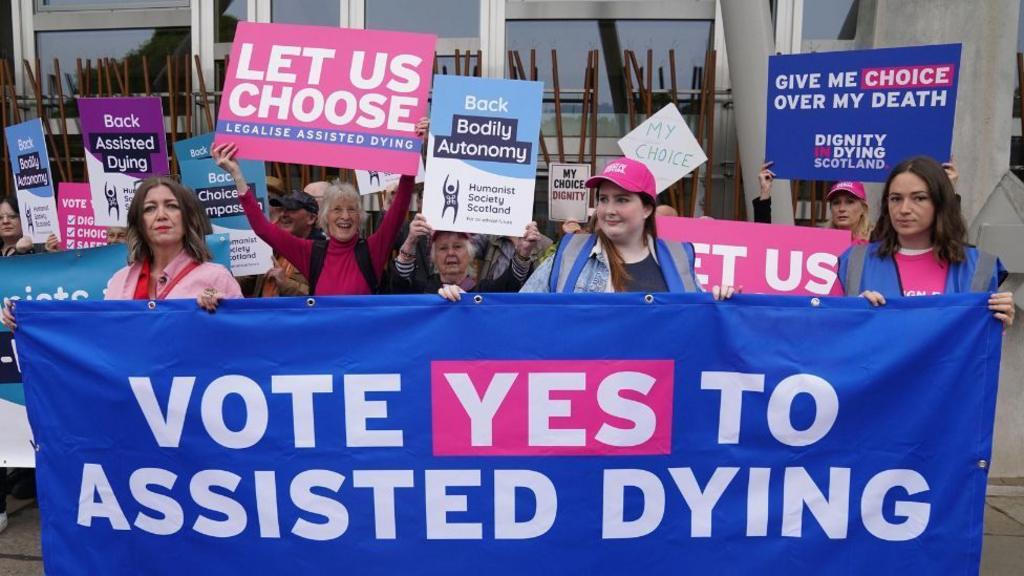Scotland’s parliament has approved a bill’s general principles allowing terminally ill, mentally competent adults to seek medical assistance in dying, passing by 70 votes to 56.
This Assisted Dying for Terminally Ill Adults (Scotland) Bill, introduced by Liberal Democrat MSP Liam McArthur, requires two further parliamentary stages before becoming law.
The legislation mandates a terminal illness diagnosis and confirmation of mental competency by two physicians before assistance can be provided.
The debate was deeply emotional, featuring poignant testimonies from family members and constituents. Supporters framed the bill as a compassionate step, while opponents voiced concerns about vulnerable populations’ protections.
This marks the third attempt to legalize assisted dying in Scotland since 2010, with previous bills failing at the initial stage. McArthur expressed relief at the vote’s outcome, highlighting the work still ahead.
The vote follows a similar, initial approval of assisted dying legislation in England and Wales. McArthur emphasized the bill’s compassionate intent, while acknowledging the brave yet necessary nature of the decision.
Notable support emerged from various parties, including the Scottish Conservatives, Liberal Democrats, and Scottish Greens. SNP MSP Elena Whitham shared a moving personal account, underscoring the suffering of those facing terminal illness without options for a peaceful end of life.
The parliament conducted a free vote, meaning party affiliations or government directives did not influence individual votes. The Scottish government maintained neutrality, with the Health Secretary abstaining from the vote.
However, several prominent figures, including First Minister John Swinney and Deputy First Minister Kate Forbes, publicly opposed the bill, as did Scottish Labour leader Anas Sarwar. Following the vote, Swinney acknowledged the respectful nature of the debate while noting significant concerns for future scrutiny stages.
Strong opposition came from Labour MSP Pam Duncan-Glancy, voicing deep concerns about the potential risks to disabled individuals and the possibility of the bill legitimizing the idea that some lives are not worth living. Similar concerns about coercion and the broad definition of terminal illness were raised by others, including former First Minister Nicola Sturgeon.
McArthur addressed concerns about a “slippery slope” and safeguards for vulnerable groups, emphasizing stringent eligibility criteria and refuting parallels to situations where assisted dying access broadened after implementation.
A key difference between the Scottish bill and the one progressing through Westminster lies in the definition of terminal illness. The Scottish bill lacks a specific life expectancy timeframe, focusing instead on an advanced, progressive illness expected to cause premature death.
The bill’s progression involves further scrutiny and potential amendments in stage two, with another vote required before becoming law. The debate was characterized by passionate and respectful discourse, with personal experiences shaping arguments on both sides.
While this represents a significant shift from previous rejections, supporters acknowledge the need for continued engagement and potential revisions. Significant amendments to McArthur’s initial proposals are expected before the final vote.
Reactions were mixed, with organizations like the Humanist Society and Dignity in Dying celebrating a step toward compassionate end-of-life choices, while groups such as Care Not Killing and CARE for Scotland expressed deep reservations and concerns for vulnerable populations.
The previous assisted dying bill in Holyrood, in 2015, was defeated at stage one. The current bill’s passage represents a notable development in the ongoing discussion surrounding end-of-life care in Scotland.
The Scottish Parliament has voted to consider allowing terminally-ill adults to seek medical assistance in dying.
A woman is arrested on suspicion of assisting the suicide of Vlad Nikolin-Caisley from Southampton.
Proposed legislation would allow terminally-ill Scots to seek medical help to end their lives.
Separate bills addressing assisted dying for terminally ill individuals are under consideration in Westminster and Scotland.
MSPs will further debate the assisted dying bill at Holyrood.

